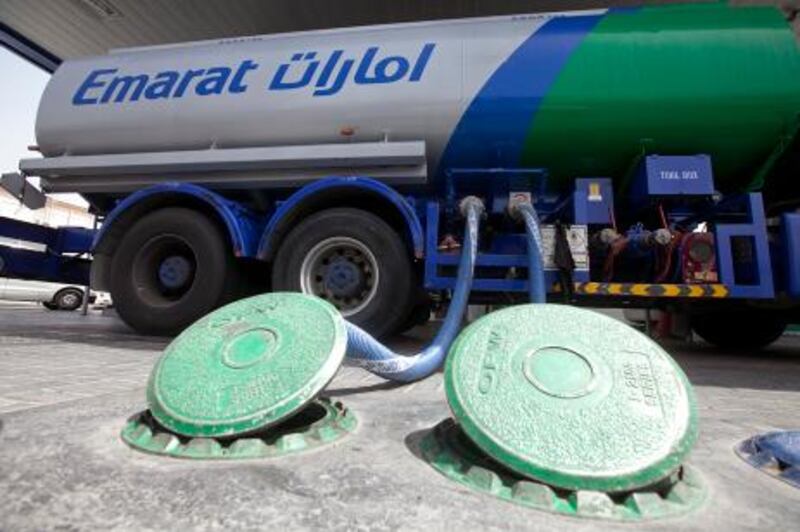DUBAI // Sixty Emarat petrol stations will have little or no fuel for sale until the end of the week.
A spokesman for the Dubai-based oil firm blamed “logistical problems”.
“We have unloading issues at the main depots,” he said. “This has caused an interruption in the system of distribution.
___________
Also
• Diesel: the forgotten fuel
• Masdar tapped for fuel solution
• Region is leading on green fuel
• Hype about biofuels leads to hunger, not a cleaner Earth
• Clean fuels have dirty secrets
___________
“It has been sorted out now, but it will take a couple of days to get back to normal.
“There are around 60 stations affected. There is petrol in some of them, they are not all totally dry. By Thursday or Friday they will be normalised.”
The company has 170 stations across Dubai and the Northern Emirates. Including Adnoc, Eppco and Enoc, there are 490 filling stations in the country.
One supervisor from a station in al Wasl said there had been deliveries in recent days, but not enough to stop the pumps running dry.
“We can normally sell 50,000 litres a day but we are getting deliveries of 9,000 a day. Sometimes it’s more, sometimes it’s less.”
There were no signs outside petrol stations that were running on empty yesterday, and attendants were forced to either gesture with their arms or explain the situation to each driver who pulled in.
“Sometimes they can get angry,” one attendant at al Ameen station on al Wasl Road said. “I try and explain the matter to them softly. Most of them are OK.”
It is the second time in eight months that Emarat has suffered shortages. A similar situation at 10 stations last September was blamed on faults in the supply chain.
The company has sustained heavy losses in recent years because it has to buy fuel at the international market price and sell it at a regulated, lower price.
It has debts of Dh2 billion and this year asked the FNC for a change in the law to let it raise capital up to 50 per cent of its own value.
Other Dubai-based companies are suffering too, with Enoc and its joint subsidiary Eppco also being required to sell fuel at a loss. A recent spike in the price of crude oil in particular has had an impact on the businesses.
“We have different resources of income and we are coping with this now because of our wider interests,” said Khalid Hadi, the director of brand and corporate communications for the two companies.
“Even so, this is a challenging situation. There are two solutions: either letting the local price fluctuate according to the international market, or there should be some subsidies coming from the authorities. We haven’t seen either yet.”
He said there had been a 10 per cent increase in custom at Enoc and Eppco stations over the past few days because of the shortages at Emarat stations.
“The storage facility at the service stations will struggle to cope with the demand that is coming from the other motorists,” he said.
“We have more than 40 trucks working around the clock now to ensure that all of these stations have enough products. We do not expect that there will be any shortages.”
At the Eppco Park Station, near Safa park, the queue for petrol was six cars deep by mid-afternoon yesterday.
Earnest staff, sweating under company branded baseball caps, struggled to cope with the extra demand. "I don't know what the problem is, but today is very busy," one attendant said.
mcroucher@thenational.ae






